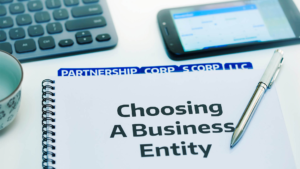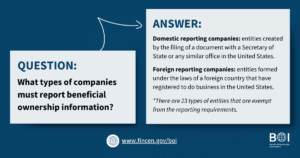Selling a business requires many important decisions, including how to structure the sale. One of the most crucial decisions when it comes to selling or acquiring a business is choosing between an asset deal or stock (equity) deal. While there are advantages and disadvantages to both, business owners may favor one over the other, depending on which side of the transaction they are on (buyer or seller).
Asset Sales
In an asset sale, the seller retains ownership of the legal entity, while the buyer purchases all or a portion of the company’s assets such as equipment, inventory, etc. The buyer typically assumes certain liabilities in addition to acquiring the assets. Asset sales are often structured as cash-free, debt-free transactions.
From the buyer’s perspective, an asset sale is generally more appealing from a tax perspective because it allows the buyer to “step-up” the basis of the acquired assets to fair market value. Buyers are motivated to allocate as much of the purchase price as possible to depreciable assets in order to reduce taxes and increase cash flow via depreciation deductions. The use of 100% bonus depreciation (down to 80% for 2023) has provided significant benefits to buyers since the enactment of the Tax Cuts and Jobs Act in 2017.
Goodwill can also be created as part of an asset acquisition where the purchase price paid by the buyer is higher than the fair market value of the net assets acquired. The goodwill is capitalized by the buyer, resulting in amortization deductions to the buyer for 15 years.
The seller, on the other hand, generally does not prefer an asset sale due to the possibility that some of the gain will be taxed at ordinary income tax rates (as opposed to capital gains rates). While some of the gain (on the sale of assets) may be taxed at federal capital gains rates of up to 20%, the sale of certain assets can be subject to higher federal ordinary income tax rates, up to 37%, depending on the seller’s tax bracket.
The seller’s tax implications also vary depending on what type of entity the seller is classified as for federal tax purposes. Due to the nature of “pass-through” entities, including partnerships and S-corporations, any gain on the sale is only taxed once. In contrast, if the seller is taxed as a C-corporation, the seller may face two layers of tax on the sale. The proceeds may first be taxed at the C-corporation level at a rate of 21% (the current federal corporate tax rate). A second layer of tax occurs at the shareholder level once the proceeds are distributed from the corporation to the shareholder(s) as a dividend (or liquidating distribution). These final payments can be taxed at a rate of up to 20%.
Although the buyer may benefit more from an asset deal for tax purposes, the seller may be able to negotiate a higher sales price, which helps offset the greater tax cost to the seller.
Stock (Equity) Sales
In the case of a stock or equity sale, the ownership of the entire entity transfers to the buyer, including all assets, liabilities, contracts, etc. This structure is different than an asset sale, in which the buyer and seller pick and choose which assets and liabilities are included. The transfer of ownership of the entire entity is the same regardless of whether the entity is taxed as a C-corporation, S-corporation, or partnership.
A corporate stock acquisition tends to be less favorable for a buyer because a buyer does not receive the tax benefit of being able to step-up the tax basis of the acquired assets to fair market value. Instead, any depreciable assets acquired are depreciated at the lower carryover tax value and may be partially or fully depreciated, resulting in no additional current tax benefits.
In a stock deal, the buyer also does not benefit from amortization deductions resulting from goodwill created in an asset deal as discussed above. The goodwill cannot be deducted until the buyer sells the stock later on in the future.
Stock sales offer tax advantages to sellers, including long-term capital gain treatment for stock held for more than one year. However, while this is a benefit for stock that is sold at a gain, it could also be a drawback if stock is sold at a loss due to capital loss deduction limitations.
When corporate stock is sold, there is no entity-level tax on the sale, so there is no concern about double taxation when selling C-corporation stock. Additionally, the seller generally walks away from the liabilities at the date of the sale given that they carry over to and become the responsibility of the buyer.
The sale of the equity or units of a limited liability corporation (LLC) as opposed to corporate stock can be treated differently depending on how the entity is taxed. If the entity is taxed as a C-corporation or S-corporation, the sale will be treated as a stock sale, and the impact to the buyer and seller will be the same as discussed above. However, if the entity is a partnership, including an LLC taxed as a partnership or a Single-Member LLC taxed as a disregarded entity, the sale is treated as an asset sale for tax purposes. In this case, the seller would likely recognize both ordinary and capital gains on the sale, and the buyer can step-up the basis of the acquired assets to fair market value, just like an asset sale.
Final Thoughts
Choosing how to structure the sale of your business is an important decision that can have significant consequences from both a tax and general business standpoint. Whether you are a buyer or seller, it is very important for both parties to work with a team of expert legal, financial and accounting professionals to ensure a successful transaction. Our firm has extensive experience working with business owners on both the buy-side and sale-side of a transaction. If you are considering buying or selling a business, please reach out to a GYF tax professional at 412-338-9300.
Related Posts
Issues Related to Selling a Business
Issues Related to Buying a Business
![]() Alyssa Lucas assisted with the research and writing of this article and has published several other blog posts on a variety of topics. She joined the GYF Tax Group in 2023, following her graduation from Robert Morris University. Alyssa provides tax compliance and planning services to individuals and businesses.
Alyssa Lucas assisted with the research and writing of this article and has published several other blog posts on a variety of topics. She joined the GYF Tax Group in 2023, following her graduation from Robert Morris University. Alyssa provides tax compliance and planning services to individuals and businesses.






